
Embark on a thrilling literary journey with Benefactor member Christine Carton and fellow Morikami members as they kick off a brand new season of riveting book explorations!
All meetings will be held on the second Wednesday of each month at 12 pm at the museum.
Morikami Book Club 2024-2025 Selection
June 11 – Shutting Out the Sun: How Japan Created Its Own Lost Generation: By Michael Zielenziger
 The world’s second-wealthiest country, Japan once seemed poised to overtake America as the leading global economic powerhouse. But the country failed to recover from the staggering economic collapse of the early 1990s. Today it confronts an array of disturbing social trends, notably a population of more than one million hikikomori: the young men who shut themselves in their rooms, withdrawing from society. There is also a growing number of “parasite singles”: single women who refuse to leave home, marry, or bear children. In this trenchant investigation, Michael Zielenziger argues that Japan’s tradition-steeped society, its aversion to change, and its distrust of individuality are stifling economic revival, political reform, and social evolution. Shutting Out the Sun is a bold explanation of Japan’s stagnation and its implications for the rest of the world.
The world’s second-wealthiest country, Japan once seemed poised to overtake America as the leading global economic powerhouse. But the country failed to recover from the staggering economic collapse of the early 1990s. Today it confronts an array of disturbing social trends, notably a population of more than one million hikikomori: the young men who shut themselves in their rooms, withdrawing from society. There is also a growing number of “parasite singles”: single women who refuse to leave home, marry, or bear children. In this trenchant investigation, Michael Zielenziger argues that Japan’s tradition-steeped society, its aversion to change, and its distrust of individuality are stifling economic revival, political reform, and social evolution. Shutting Out the Sun is a bold explanation of Japan’s stagnation and its implications for the rest of the world.
Morikami Book Club 2025-2026 Selection
October 8 – Inheritors. By: Aako Serizawa
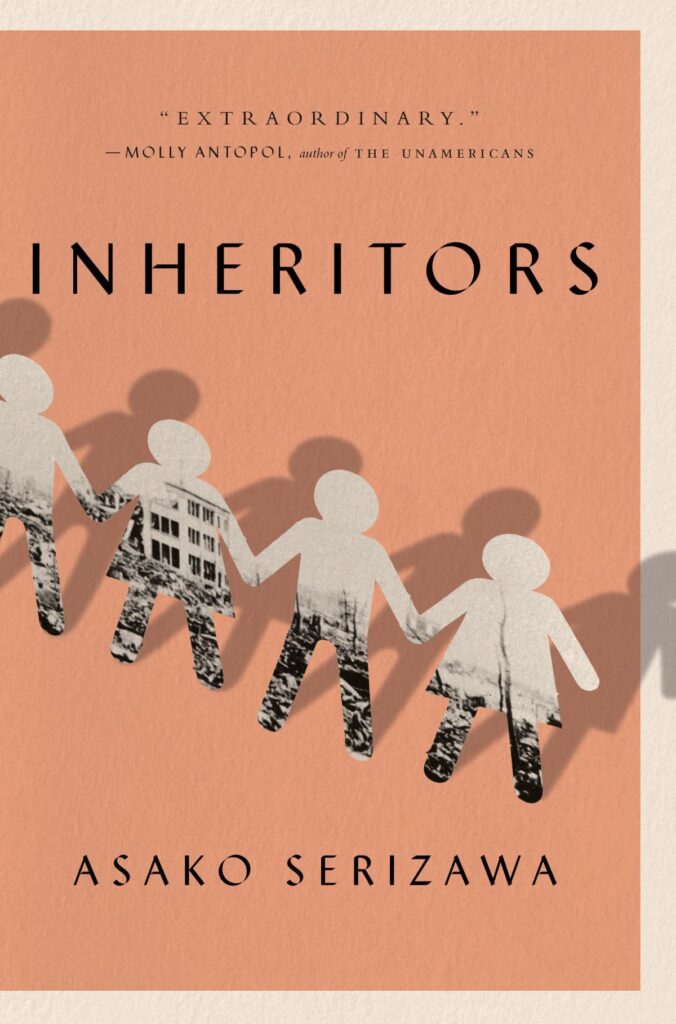
A kaleidoscopic portrait of five generations scattered across Asia and the United States, Inheritors is a heartbreakingly beautiful and brutal exploration of a Japanese family fragmented by the Pacific side of World War II. A retired doctor is forced to confront the moral consequences of his wartime actions. His brother’s wife, compelled to speak of a fifty-year-old murder, reveals the shattering realities of life in Occupied Japan. Half a century later, her estranged American granddaughter winds her way back East, pursuing her absent father’s secrets. Decades into the future, two siblings face the consequences of their great-grandparents’ war as the world shimmers on the brink of an even more pervasive violence. Grappling with the legacies of loss, imperialism, and war, Inheritors offers an intricate tapestry of stories illuminating the complex ways in which we live, interpret, and pass on our tangled histories.
November 12 – The Ghost of Honolulu: A Japanese Spy, a Japanese American Spy Hunter and an untold Story of Pearl Harbor. By: Mark Harmon
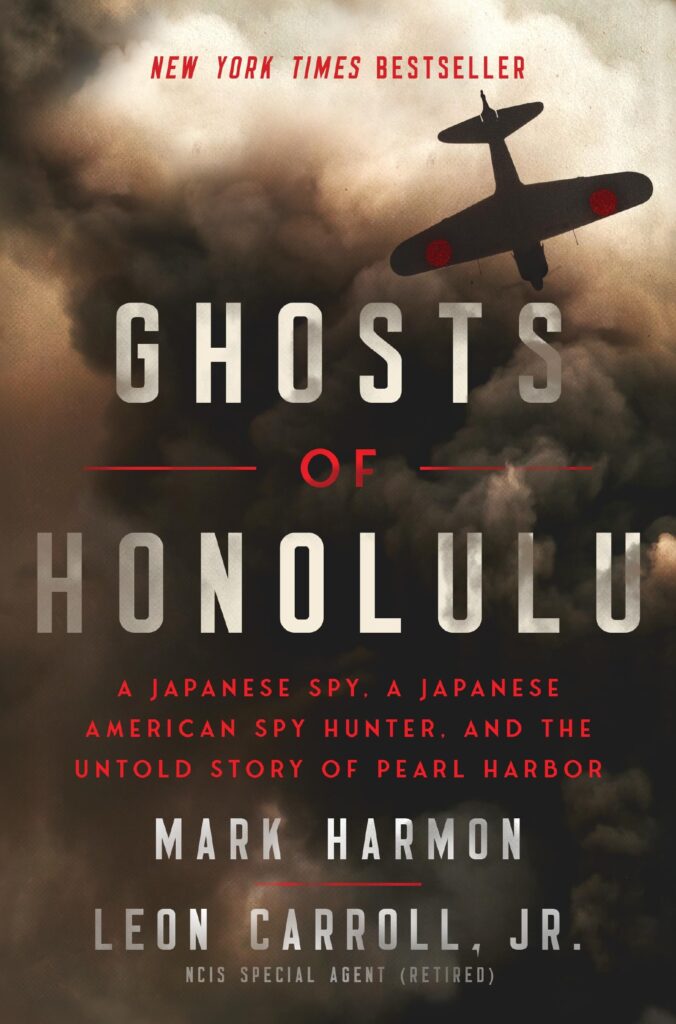
A U.S. naval counterintelligence officer working to safeguard Pearl Harbor; a Japanese spy ordered to Hawaii to gather information on the American fleet. On December 7, 1941, their hidden stories are exposed by a morning of bloodshed that would change the world forever. Scrutinizing long-buried historical documents, NCIS star Mark Harmon and co-author Leon Carroll, a former NCIS Special Agent, have brought forth a true-life NCIS story of deception, discovery, and danger.
Hawaii, 1941. War clouds with Japan are gathering and the islands of Hawaii have become battlegrounds of spies, intelligence agents, and military officials – with the island’s residents caught between them. Toiling in the shadows are Douglas Wada, the only Japanese American agent in naval intelligence, and Takeo Yoshikawa, a Japanese spy sent to Pearl Harbor to gather information on the U.S. fleet. Douglas Wada’s experiences in his native Honolulu include posing undercover as a newspaper reporter, translating wiretaps on the Japanese Consulate, and interrogating America’s first captured POW of World War II, a submarine officer found on the beach. Takeo Yoshikawa is a Japanese spy operating as a junior diplomat with the consulate who is collecting vital information that goes straight to Admiral Yamamoto. Their dueling stories anchor Ghosts of Honolulu’s gripping depiction of the world-changing cat and mouse games played between Japanese and US military intelligence agents (and a mercenary Nazi) in Hawaii before the outbreak of the second world war.
Also caught in the upheaval are Honolulu’s innocent residents – including Douglas Wada’s father – who endure the war’s anti-Japanese fervor and a cadre of intelligence professionals who must prevent Hawaii from adopting the same destructive mass internments as California.
December 10 – Japanese Death Poems; Written by Zen Monks and Haiku Poets
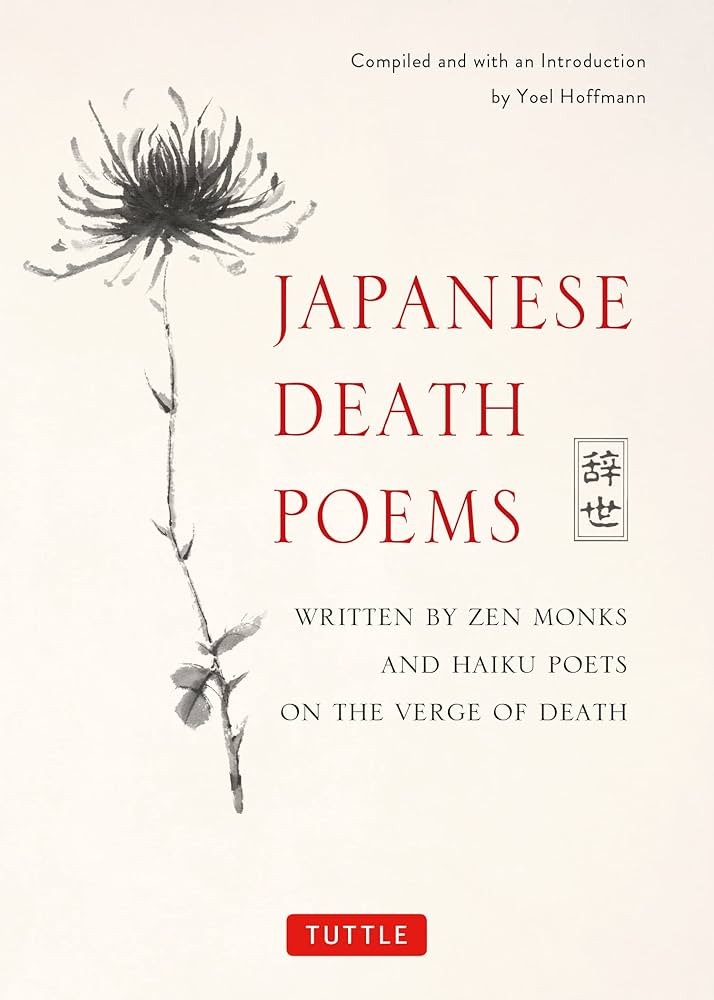
“A wonderful introduction the Japanese tradition of jisei, this volume is crammed with exquisite, spontaneous verse and pithy, often hilarious, descriptions of the eccentric and committed monastics who wrote the poems.” —Tricycle: The Buddhist Review
Although the consciousness of death is, in most cultures, very much a part of life, this is perhaps nowhere more true than in Japan, where the approach of death has given rise to a centuries-old tradition of writing jisei, or the “death poem.” Such a poem is often written in the very last moments of the poet’s life.
Hundreds of Japanese death poems, many with a commentary describing the circumstances of the poet’s death, have been translated into English here, the vast majority of them for the first time. Compiler Yoel Hoffmann explores the attitudes and customs surrounding death in historical and present-day Japan and gives examples of how these have been reflected in the nation’s literature in general. The development of writing jisei is then examined—from the longing poems of the early nobility and the more “masculine” verses of the samurai to the satirical death poems of later centuries.
January 14 – Fish Swimming in Dappled Sunlight. By: Riku Onda – Translated by: Alison Watts
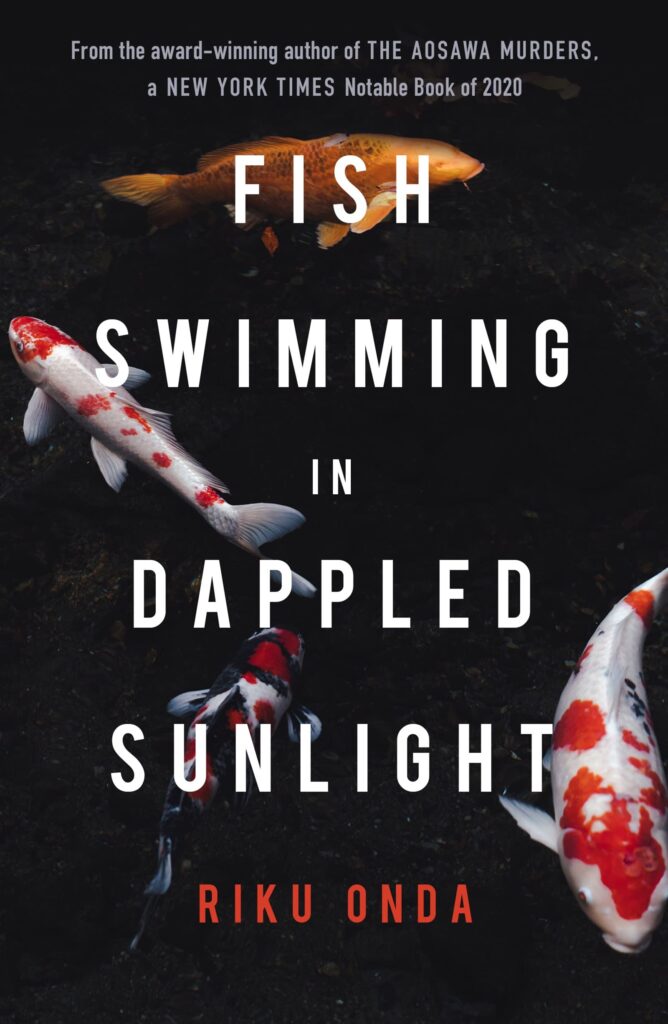
Set in Tokyo over the course of one night, Aki and Hiro have decided to be together one last time in their shared flat before parting. Their relationship has broken down after a mountain trek during which their guide died inexplicably. Now each believes the other to be a murderer and is determined to extract a confession before the night is over. Who is the murderer and what really happened on the mountain? In the battle of will between them, the chain of events leading up to this night is gradually revealed in a gripping psychological thriller that keeps the reader in suspense to the very end.
February 11 – The Lady and the Monk. By: Pico Iyer
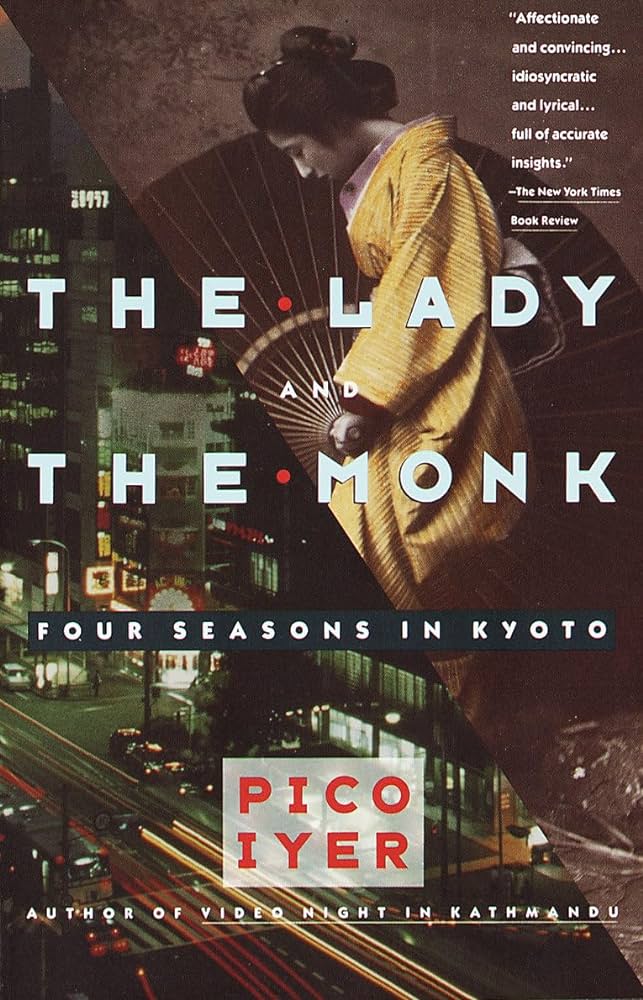 When Pico Iyer decided to go to Kyoto and live in a monastery, he did so to learn about Zen Buddhism from the inside, to get to know Kyoto, one of the loveliest old cities in the world, and to find out something about Japanese culture today—not the world of businessmen and production lines, but the traditional world of changing seasons and the silence of temples, of the images woven through literature, of the lunar Japan that still lives on behind the rising sun of geopolitical power. All this he did.
When Pico Iyer decided to go to Kyoto and live in a monastery, he did so to learn about Zen Buddhism from the inside, to get to know Kyoto, one of the loveliest old cities in the world, and to find out something about Japanese culture today—not the world of businessmen and production lines, but the traditional world of changing seasons and the silence of temples, of the images woven through literature, of the lunar Japan that still lives on behind the rising sun of geopolitical power. All this he did.
And then he met Sachiko. Vivacious, attractive, thoroughly educated, speaking English enthusiastically if eccentrically, the wife of a Japanese “salaryman” who seldom left the office before 10 PM, Sachiko was as conversant with tea ceremony and classical Japanese literature as with rock music, Goethe, and Vivaldi. With the lightness of touch that made Video Night in Kathmandu so captivating, Pico Iyer fashions from their relationship a marvelously ironic yet heartfelt book that is at once a portrait of cross-cultural infatuation—and misunderstanding—and a delightfully fresh way of seeing both the old Japan and the very new.
March 11 – Butter. By: Asuko Yusuki
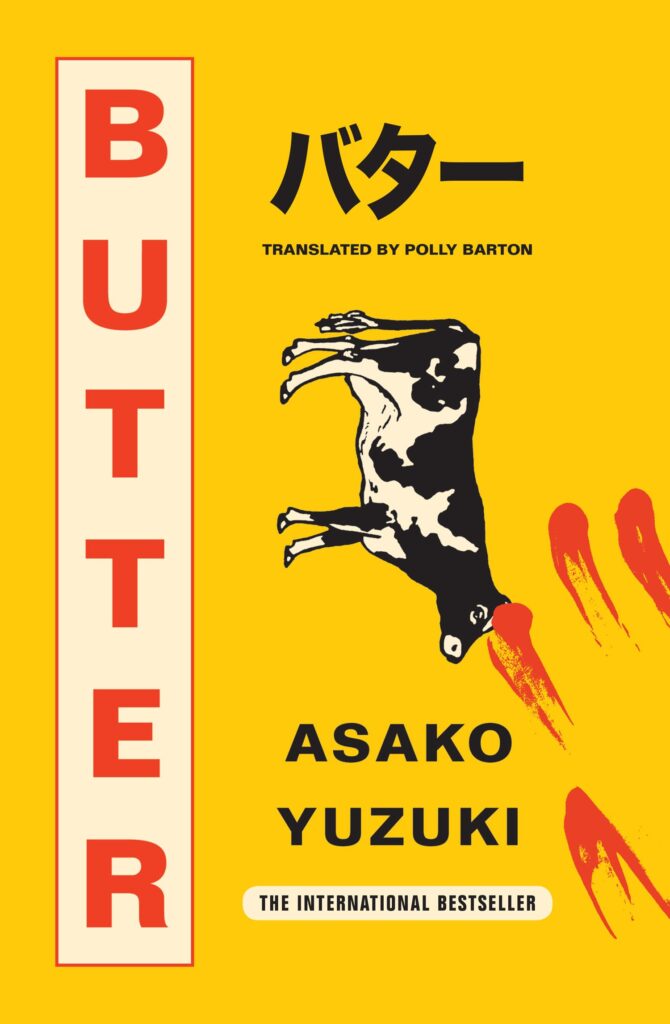
The cult Japanese bestseller about a female gourmet cook and serial killer, and the journalist intent on cracking her case, inspired by a true story
Gourmet cook Manako Kajii sits in the Tokyo Detention House convicted of the serial murders of lonely businessmen, whom she is said to have seduced with her delicious home cooking. The case has captured the nation’s imagination, but Kajii refuses to speak with the press, entertaining no visitors. That is until journalist Rika Machida writes a letter asking for her recipe for beef stew, and Kajii can’t resist writing back.
Rika, the only woman in her news office, works late each night, rarely cooking more than ramen. As the visits unfold between her and the steely Kajii, they are closer to a master class in food than journalistic research. Rika hopes this gastronomic exchange will help her soften Kajii, but it seems that Rika might be the one changing. With each meal she eats, something is awakening in her body. Do she and Kajii have more in common than she once thought? Inspired by the real case of a convicted con woman and serial killer—the “Konkatsu Killer”—Asako Yuzuki’s Butter is a vivid, unsettling exploration of misogyny, obsession, romance, and the transgressive pleasures of food in Japan.
April 8 – At Home in Japan. By: Rebecca Otowa
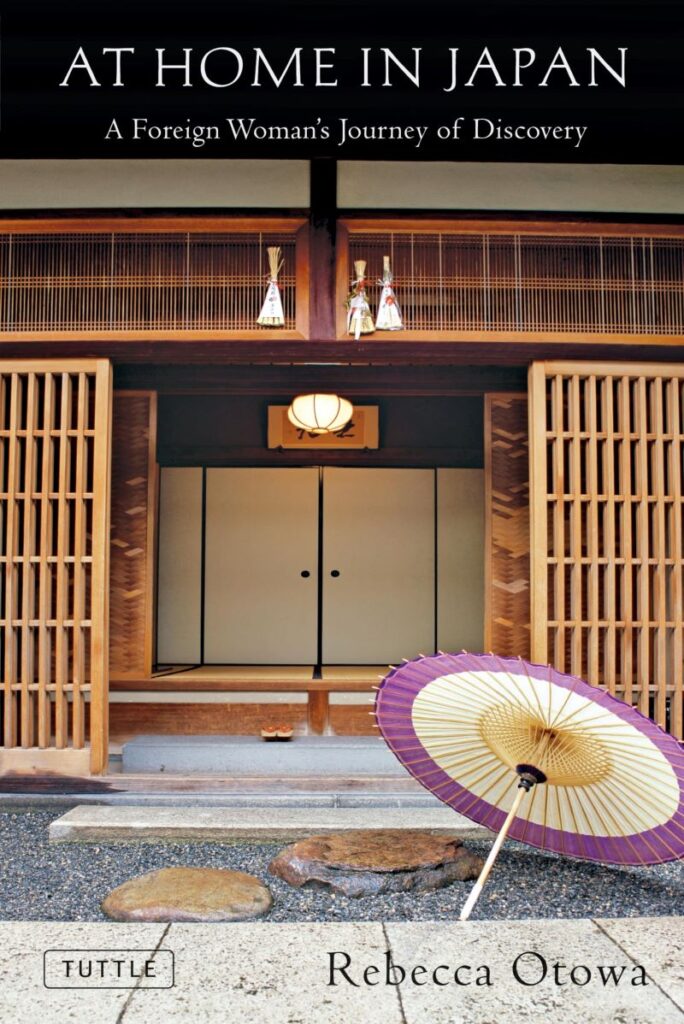
What would it be like to move to Japan, leaving everyone you know behind, to become part of a traditional Japanese household? At Home in Japan tells an extraordinary true story of a foreign woman who goes through a fantastic transformation, as she makes a move from a suburban lifestyle in California to a new life, living in Japan. She dedicates 30 years of her life to being a housewife, custodian and chatelaine of a 350-year-old farmhouse in rural Japan.
This astonishing book traces a circular path from were Rebecca began, to living under Japanese customs—from the essential day to day details of life in the house and village, through relationships with family, neighbors and the natural and supernatural entities with which the family shares the home. Rebecca Otowa then focuses on her inner life, touching on some of the pivotal memories of her time in Japan, the lessons in perception that Japan has taught her and how she has been changed by living in Japan.
May 13 – No Longer Human. By: Osamu Dazai
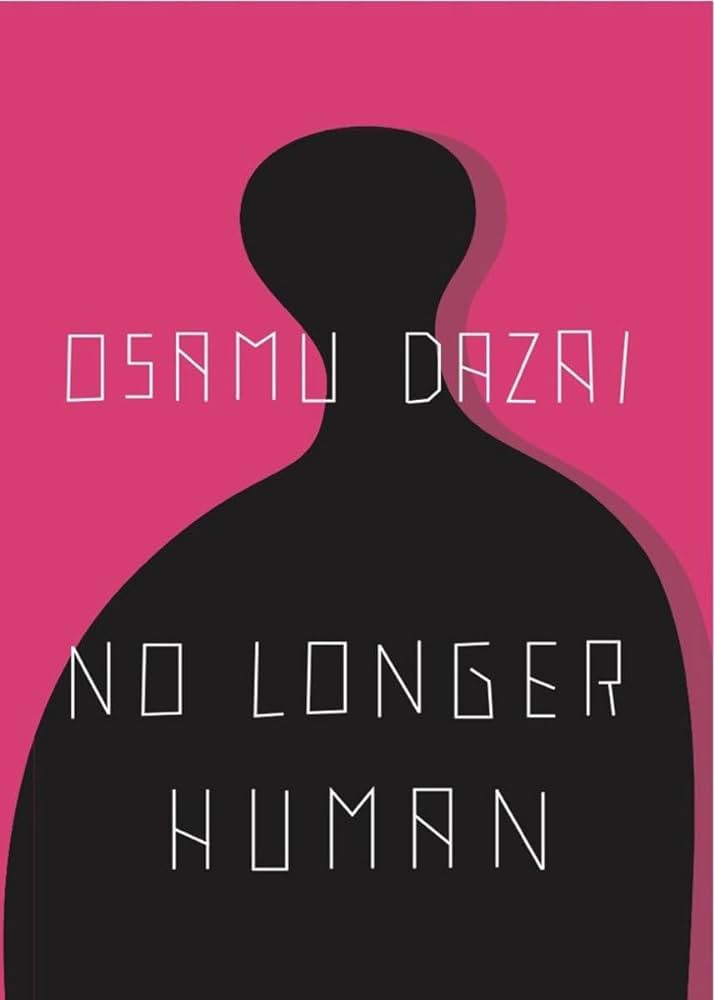
“Mine has been a life of shame. I can’t even guess what it must be to live the life of a human being.”
Portraying himself as a failure, the protagonist of Osamu Dazai’s NO LONGER HUMAN narrates a seemingly normal life even while he feels incapable of understanding human beings. His attempts to reconcile himself to the world around him begin in early childhood, continue through high school, where he becomes a “clown” to mask his alienation, and eventually lead to a failed suicide attempt as an adult. Without sentimentality, he records the casual cruelties of life and its fleeting moments of human connection and tenderness.
Still one of the ten bestselling books in Japan, NO LONGER HUMAN is an important and unforgettable modern classic.
June 10 – The Forest of Wool and Steel. By: Natsu Miyashita
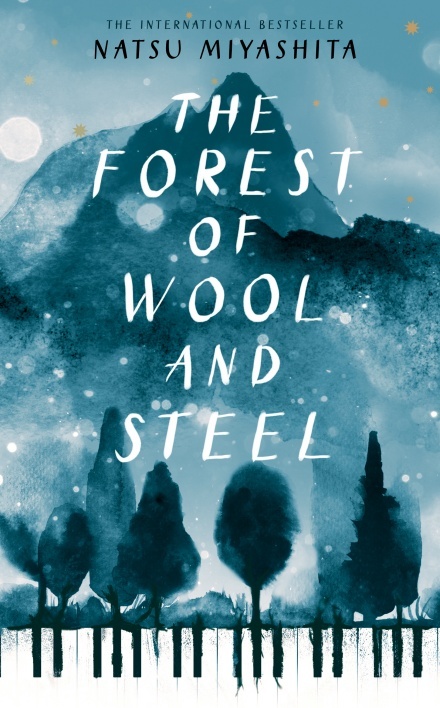
Tomura is startled by the hypnotic sound of a piano being tuned in his school. It seeps into his soul and transports him to the forests, dark and gleaming, that surround his beloved mountain village. From that moment, he is determined to discover more.
Under the tutelage of three master piano-tuners – one humble, one cheery, one ill-tempered – Tomura embarks on his training, never straying too far from a single, unfathomable question: do I have what it takes?
Set in small-town Japan, this warm and mystical story is for the lucky few who have found their calling – and for the rest of us who are still searching. It shows that the road to finding one’s purpose is a winding path, often filled with treacherous doubts and, for those who persevere, astonishing moments of revelation.